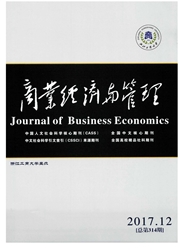

 中文摘要:
中文摘要:
以目标理论为基础,文章通过实验验证了消费者对混合产品的评价存在两条路径——目标启发效应和目标稀释效应:当混合产品的基础产品是典型产品时,添加目标一致附加功能评价最好;当基础产品是非典型产品时,添加目标不一致附加功能的评价最好;当同样是添加目标一致功能,消费者对以典型产品为基础的混合产品评价,要高于以非典型产品为基础的混合产品的评价;而当同样是添加目标不一致功能,消费者对以非典型产品为基础的混合产品的评价,要高于以典型产品为基础的混合产品的评价。
 英文摘要:
英文摘要:
Based on goal theory, the authors try to prove the two paths of evaluation from the consumers on hybrid products with experiments: goal-inspired effect and-goal diluted effect. The results show that, when the basic product is a typical product, the attachment of a goal-consistent function will get better evaluation. When the basic product is an atypical product, the attachment of a goal-inconsistent function will get better evaluation. When a goal-inconsistent function is added to both, consumers give a higher evaluation on the hybrid products based on atypical products in contrast with those based on typical products.
 同期刊论文项目
同期刊论文项目
 同项目期刊论文
同项目期刊论文
 期刊信息
期刊信息
